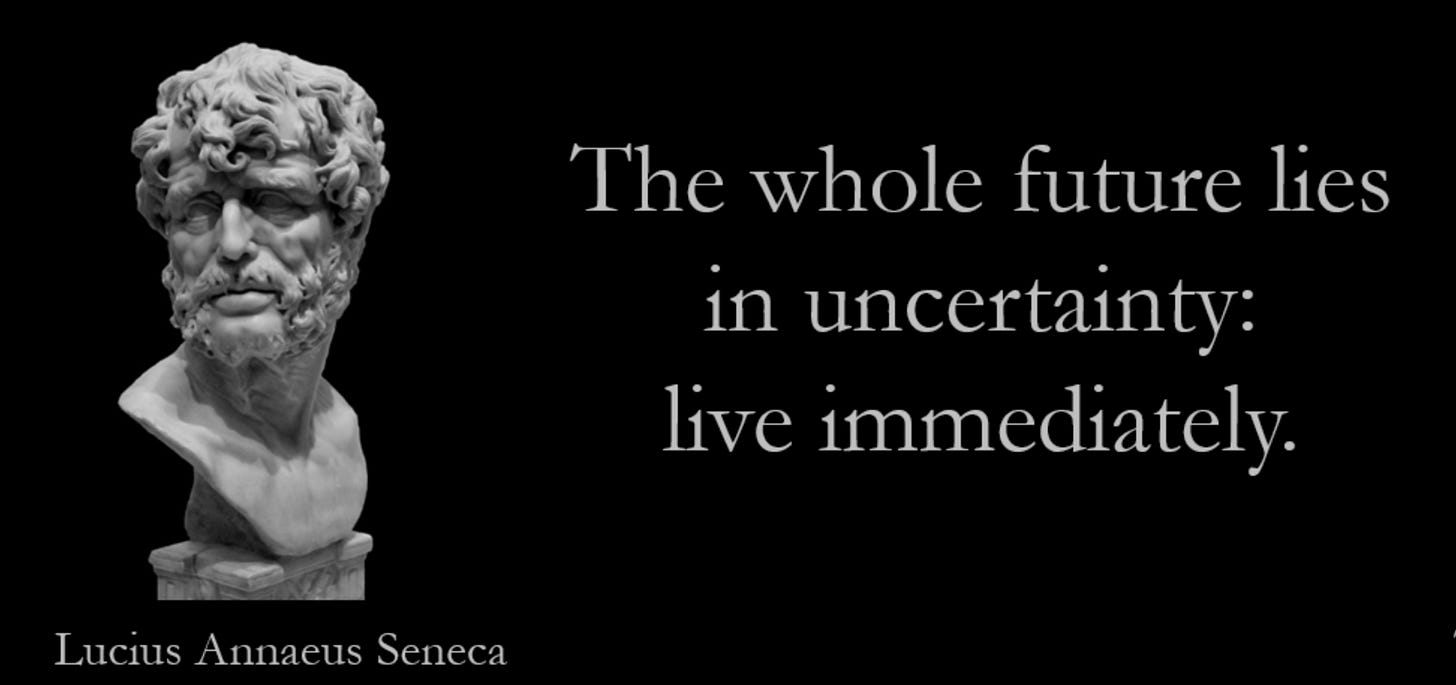In a world filled with uncertainties and external influences, the ancient Stoics offer timeless wisdom on navigating life's challenges by focusing on what is within our control and gracefully letting go of what is not. Let’s explore the insightful teachings of Stoic philosophers such as Epictetus, Seneca and Marcus Aurelius, emphasizing the importance of channeling our energy toward the elements of life we can influence while serenely accepting the rest.
1. The Serenity of Acceptance: The Greek Stoic philosopher Epictetus, born in the first century, urged individuals to find serenity through acceptance. His words, "We cannot choose our external circumstances, but we can always choose how we respond to them," highlight the crux of Stoic philosophy. By accepting the external factors beyond our control, we free ourselves from unnecessary distress and cultivate a tranquil mindset.
2. The Power of Choice: Marcus Aurelius, the Roman Emperor and Stoic philosopher, emphasized the power of choice in shaping our inner lives. "You have power over your mind, not outside events. Realize this, and you will find strength," he wisely stated. Stoicism encourages individuals to recognize the agency they have over their thoughts and reactions, irrespective of external circumstances.
3. The Art of Detachment: Seneca, a prominent Stoic philosopher and statesman, wrote extensively on the art of detachment. "True happiness is... to enjoy the present, without anxious dependence upon the future," he proclaimed. Stoicism teaches us to detach ourselves from an obsessive focus on the future or outcomes beyond our control, allowing us to savor and appreciate the present moment.
4. Managing Emotions: Epictetus, a former slave turned philosopher, emphasized the importance of managing emotions. "Any person capable of angering you becomes your master; he can anger you only when you permit yourself to be disturbed by him,” he noted. Stoicism encourages us to set realistic expectations and avoid excessive concern over external events that lie beyond the realm of our control.
5. Channeling Energy Wisely: Marcus Aurelius urged individuals to channel their energy wisely. "Very little is needed to make a happy life; it is all within yourself, in your way of thinking," he observed. Stoicism invites us to direct our energy toward cultivating virtues, fostering positive mindsets and making choices aligned with our values.
6. Responding with Virtue: Seneca underscored the importance of responding to challenges with virtue. "It's not that we have a short time to live, but that we waste much of it," he lamented. Stoicism teaches that, despite external circumstances, we have the power to respond with wisdom, courage and integrity—virtues that contribute to a meaningful and purposeful life.
7. Navigating Adversity: Seneca, again, provided guidance on navigating adversity with grace. “Fire is the test of gold; adversity, of strong men," he observed. Stoicism encourages individuals to view challenges as opportunities for growth, recognizing that our response to adversity defines our character.
Ancient Stoic philosophy serves as a beacon of wisdom in the modern world, offering a roadmap for navigating the complexities of life. By focusing on what lies within our control and embracing the power of choice, individuals can find serenity, cultivate resilience and lead lives of purpose and virtue. As we heed the timeless advice of Epictetus, Seneca and Marcus Aurelius, we discover the profound truth that true mastery lies not in controlling external circumstances but in mastering our responses to them.
Excellent link (not paid for this in any way, shape or form. Just really good stuff):
Enjoy and be safe.






